back...Hygienic conditions in Polen-Jugendverwahrlager Litzmannstadt

Shortage of basic cleansing products and, in many cases, not being able to wash oneself was one of the most acute aspects of the daily struggle for survival to which the child-prisoners of the German Nazi Concentration Camp for Polish Children in Łódź were subjected. The appalling sanitary conditions of the camp were, on the one hand, a constant source of threat of infectious diseases which might result in a permanent damage to health or death (such was the fate of many prisoners – victims of the typhus epidemic). On the other hand, children were punished by the camp officers for failing to meet the unachievable cleanliness standards. Below you will find selected accounts of the hygienic situation in Polen-Jugendverwahrlager der Sicherheitspolizei in Litzmannstadt.

“We were required to be clean, but were not given any means to meet the requirements. We washed by the well, in cold water. We wore the same set of clothes in winter and summer – a short-sleeved dress and a jacket.”
AIPN, Ld 503/106, prosecutor’s files pertaining to the court case against: Pol/Pohl Eugenia... Minutes of the main court session. Testimony of [Maria] Jaworska, vol. 3, June 6, 1975, p. 199.
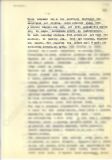
“Washing was carried out in the following manner: we were all driven out to stand by the well; one person pumped cold water for everybody to wash. Sometimes all of a sudden we were ordered to return to our quarters. If you were not quick enough, you were not given another opportunity to clean yourself. There was a washbasin in our room. However, no one dared to use it. We were afraid. The filth was terrible, everything was sticky. But it was impossible for us to get clean. We were provided with no powder or soap whatsoever.”
AIPN, Ld 503/106, prosecutor’s files pertaining to the court case against: Pol/Pohl Eugenia... Minutes of the main court session. Testimony of Józef Witkowski, March 15, 1974, vol. 1, p. 318.
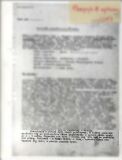
“The quarters in the camp were quite primitive. Each large room housed more than ten bunk beds; 2 to 3 people slept in one bed. There were no washrooms – we had to wash at the pump in the courtyard. Not everyone washed themselves as the soap was scarce. In winter it was simply too cold to do so. Everybody in the camp was dirty.”
AIPN, Ld 503/106, prosecutor’s files pertaining to the court case against: Pol/Pohl Eugenia... Minutes of the hearing of witness Maria Wiśniewska, October 4, 1946, vol. 22, p. 110.
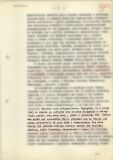
“The conditions were anti-sanitary. I remember that in February 1943 I slept on the floor without any clothes on, picking a whole lot of lice, fleas and bedbugs off my body with my hands. We were not provided with soap or towels. We washed at the pump in the courtyard, regardless of the season and temperature. This led to various kinds of diseases, such as scabies, trachoma, typhoid fever, ulcers and others.”
AIPN, Ld 503/106, prosecutor’s files pertaining to the court case against: Pol/Pohl Eugenia... Minutes of the hearing of witness Jan Woszczyk, September 27, 1969, vol. 22, p. 15.
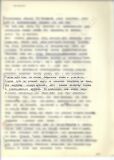
“We had to run to reach the well. The defendant was standing in the pathway, we had to show her our feet to check if they were clean; but we were barefoot and we could not wipe them off, so they were always covered in sand, even though we had just washed. This happened on several occasions.”
AIPN, Ld 503/106, prosecutor’s files pertaining to the court case against: Pol/Pohl Eugenia... Minutes of the main court session. Testimony of Brygida Casselius, March 19, 1974, vol. 2, p. 49.
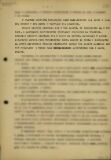
“As far as taking care of our personal hygiene is concerned, we were left to our own devices. We washed only in cold water – without soap – scrubbing our bodies with sand. In order to wash our clothes, we soaked them in water, placed them on the lawn and scrubbed the items with straw. In summer we would dry our clothes in the courtyard, but in colder seasons we used to put the wet garments in our beds and dry them with our body heat. This method did not always produce sufficient results and the next morning we had to put on wet clothes.”
AIPN, GK 165/379, Memoirs of a former prisoner Józefa Stawna, vol. 2, p. 218 [on the situation in the Dzierżązna branch of the concentration camp in Łódź].
